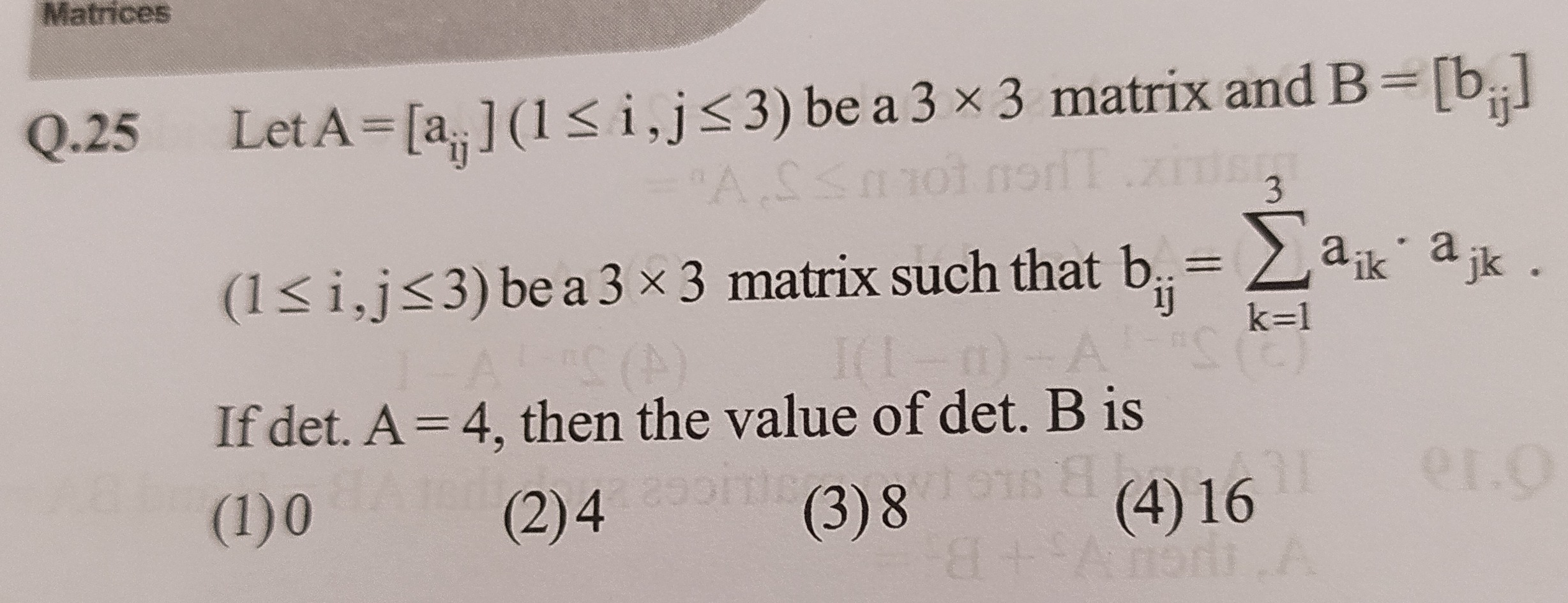Question
Question: Let A = $[a_{ij}]$ $(1 \leq i, j \leq 3)$ be a 3 × 3 matrix and B = $[b_{ij}]$ $(1 \leq i,j \leq 3)$...
Let A = [aij] (1≤i,j≤3) be a 3 × 3 matrix and B = [bij] (1≤i,j≤3) be a 3x3 matrix such that bij=∑k=13aik⋅ajk.
If det. A = 4, then the value of det. B is

A
0
B
4
C
8
D
16
Answer
16
Explanation
Solution
The matrix B is defined by its elements bij=∑k=13aikajk. This summation is recognized as the element in the i-th row and j-th column of the matrix product AAT. Thus, B=AAT. The determinant of B is then det(AAT). Using the property det(XY) = det(X)det(Y) and det(AT) = det(A), we get det(B) = det(A)det(AT) = det(A)det(A) = (det(A))^2. Given det(A) = 4, det(B) = 42=16.
